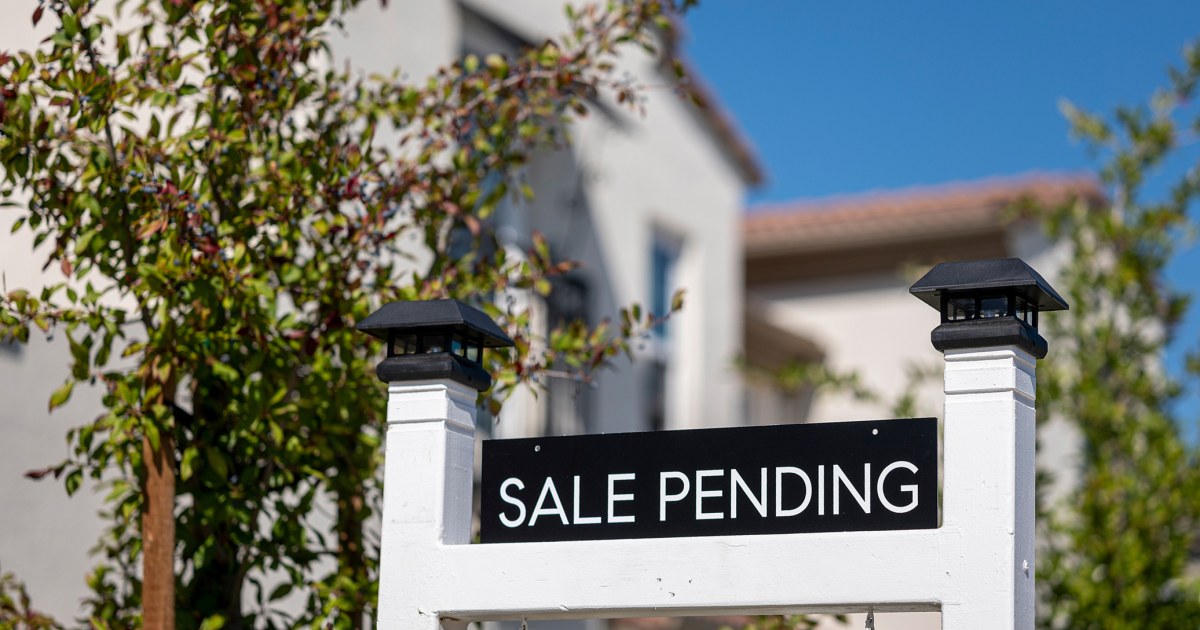Mortgage interest rates have nearly tripled in the span of just a couple of years amid inflation fears and strong economic growth.
After rising for 10 consecutive quarters starting in fall 2020, the median U.S. home sale price has now declined for two straight quarters, to $416,100, according to federal economic data. That is still $87,100 above the quarter just before the pandemic, or an increase of 26.4%.
A person who buys that median-priced home with a 20% down payment and an average interest rate would have a monthly mortgage payment of about $2,300.
Any 1-3 folks wanna go in on a house together since it’s going to take a min of 2 full salaries to buy a home these days?
Real Estate Corporations goals include blocking home ownership and forcing Americans into a rental only market, similar to Germany.
Germany is a terrible comparison here. Home ownership in Germany is about 50%, true, much lower than the US’ 65%. However, the majority of those rentals are apartments rather than houses, since even small towns are highly densified, very unlike the USA. There are many state landlords which provide rentals at a very attractive price; it’s rare for people to spend more than 30% of their post-tax income on rent. Furthermore, there are extremely strong protections for renters, restrictions on rent increases, and they can renovate their apartments as they please. That’s very different from what American real estate corporations want.
The United States isn’t building houses; it is building apartments.
That’s great but the percentage of people who currently live in single family houses is much greater in the USA than in Germany.
If only the USA was building some solid laws protecting tenants…
Really is that how Germany is? And all this bullshit about inflation it is called Corporate Greed and we need to be singing it to rafters. Fucking greedy corporations making record profits while wages stagnate.
All raising rates do is continue to make it impossible for average American to own a home.
Interesting, I didn’t know that about Germany. I’ll have to look into how that is working out for them, seeing as probably quite a lot of people my age and younger won’t be able to afford to buy.
Not sure where they get that $416,100 is a decline. That looks like an all-time high.
Worse. The US is building suburbs.
Not that this doesn’t suck for current home buyers, buy it’s worth keeping in mind that this is still fairly low on a historic perspective. Rates through the last part of the 20th century were often in the double digits (https://www.freddiemac.com/pmms). They dropped to around the current level in the late 90’s and started tanking in the early 2000’s. And then fell off a cliff in 2008. The Fed has been trying to get rates back up again ever since, often with negative results. At the same time, raising rates is one of the few tools the Fed has to keep inflation in check, and it needs to be used, lest we end up in the same situation as Turkiye with inflation upwards of 80% officially (https://www.bbc.com/news/world-europe-63120478). Erdogan has very helpfully provided a great case study in lowering interest rates while fighting inflation, he chose poorly.
The difference is that the same house in 1990 at 12% still only cost $150k. Today at 7% it costs $1.2m
Source: the house I grew up in, county sales records.
150k at 12% is $1543/mo; in 2023 dollars, that’s $3609/mo. 1.2M at 7% is $7984/mo.
Over the same time period, the S&P500 has gone up by a factor of 13.6x - if you invested $150k in 1990 you’d have $2.04M today.
I’m not trying to make a point - I just thought this was interesting.
Right, these people are so quick to “well akshually” they completely ignore the inflated house costs since which layers more unaffordability on top of already unaffordability.
There’s only a handful of areas where that level of appreciation happened. There’s about as many places that 150k house is the same or less because it’s a crime ridden neighborhood now, or there’s no economic activity in the area anymore. The average is more like 2-3x increase in the last 30 years.
Home prices were much lower.
How does this make housing more affordable for the growing population?
In theory prices should go down as a result but the market is just like “lmao”.
The opposite is happening. Everyone with a 2-4ish% mortgage is holding onto it for dear life so supply is super low which is causing housing prices to continue to climb. Can’t blame those homeowners. Even if you sell your house for some inflated amount, you need to buy too and then you’re stuck with a shifty mortgage rate.
Yeah there was an article that said national averages are down or slowing and maybe in the midwest but where I’m at a house purchased in early 2021 is evaluated at 30% more than purchase price. Copule that with interest rate rises and refi or buying that property doubles the monthly payment.
It doesn’t. The solution is to start building and the best way to do that is ban zoning.
deleted by creator
It’s a byproduct of controlling inflation. The Fed will stop raising rates soon and start lowering them once inflation is under control.
If the fed did nothing, then inflation would continue to be 7+%, which would be equally bad for affordability.
I have student loans at higher rates






